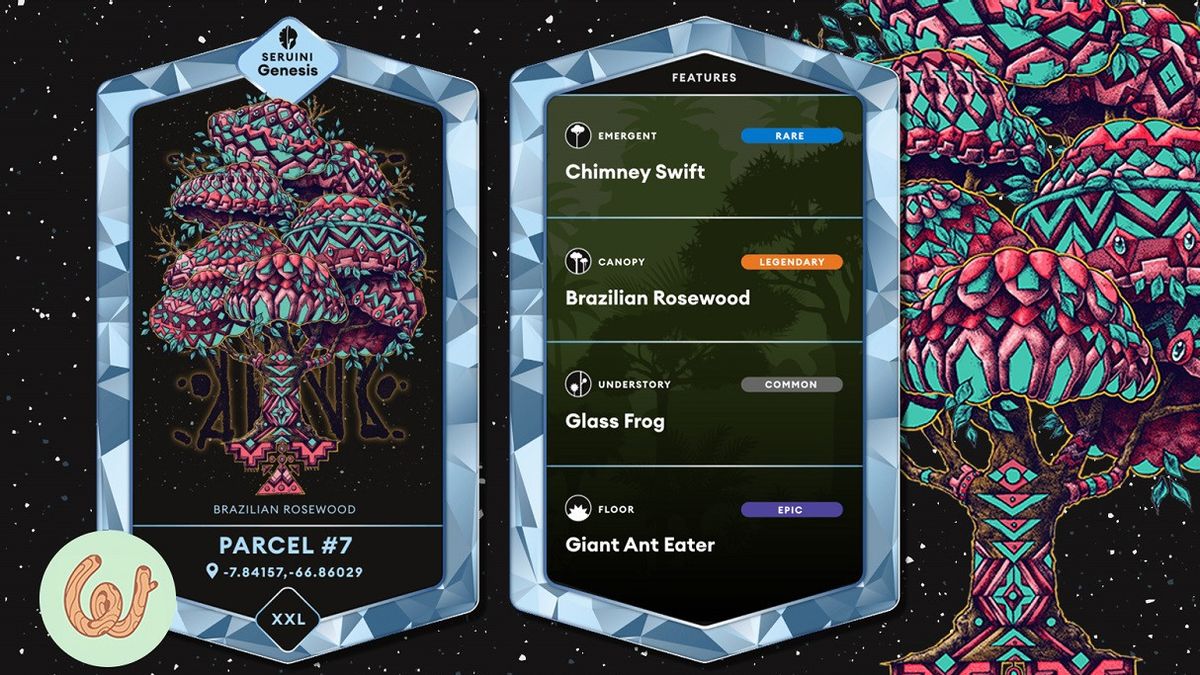JAKARTA - A Brazilian company that 'owns' 410 square kilometers (158 sq mi) of the Amazon rainforest, is offering a new way to fund conservation: selling non-fungible tokens (NFTs) that allow buyers to sponsor the conservation of specific forest areas.
NFTs are a type of crypto asset that exploded in popularity last year, with unique digital signatures that guarantee, they are one of a kind. Other efforts to fund conservation through NFT include plans for a South African wildlife sanctuary.
In Brazil, a company called Nemus on Friday last week began selling NFTs that provide buyers with unique sponsorships, of any size, with results that will conserve trees, regenerate logged areas and promote sustainable development.
Token holders will not own the land themselves, but will have access to important information about its preservation, from satellite imagery to permits and other documentation, said Nemus founder Flavio de Meira Penna.
He said Nemus had sold 10 percent of the token's initial offering for 8,000 hectares on the first day.
"My guess is this will accelerate rapidly in the coming weeks," Penna told Reuters, adding blockchain technology would ensure transparency in the use of funds.

Plots vary in size from a quarter acre to 81 acres (0.6 to 200 acres), which buyers can find by looking at online maps.
The NFT for the smallest plot sells for US$150 and the largest sells for US$51,000, said Penna, who hopes to raise US$4 million to US$5 million, to buy an additional 2 million hectares of land already under negotiation in Pauini Municipality, Amazonas State. .
In addition to conserving forests, Penna said the fund would support sustainable development efforts, such as local communities harvesting acai berries and Brazil nuts in Pauini, which is the size of Belgium.
To note, each token will be accompanied by an Amazonian plant or animal artwork, processed by San Francisco-based Concept Art House, a content developer and publisher for NFT.
However, critics question the value of NFTs for causing environmental problems, as tokens using blockchain technology require strong computing power, increasing demand for power generation that releases climate-warming greenhouse gases.
Penna rejects that view, saying preserving the threatened Amazon region far outweighs the environmental costs of NFT transactions.
The English, Chinese, Japanese, Arabic, and French versions are automatically generated by the AI. So there may still be inaccuracies in translating, please always see Indonesian as our main language. (system supported by DigitalSiber.id)













